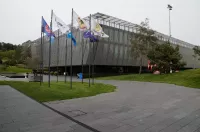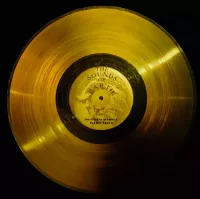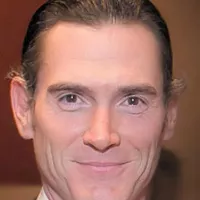The Faroe Islands, located in the North Atlantic, are a self-governing territory belonging to Denmark. While they are part of the Kingdom of Denmark, they have their own distinct culture and language. Faroese, the official language, shares close ties with Icelandic, allowing for some level of mutual comprehension between speakers.
1900: Birth of William Heinesen and Jørgen-Frantz Jacobsen
Two significant figures in Faroese literature, William Heinesen and Jørgen-Frantz Jacobsen, were born in 1900. They are notable for choosing to write in languages other than Faroese.
1906: Founding of the Union Party
The Union Party (Sambandsflokkurin) was founded in 1906. While supportive of Faroese literature, they opposed its use in education.
1909: First Faroese Novel
"Bábelstornið," the first novel written in the Faroese language, was published in 1909, marking a pivotal moment in Faroese literature. The novel was authored by Regin í Líð.
1909: Notable Clergy Member
Venceslaus Ulricus Hammershaimb, a significant figure in Faroese religious history, passed away in 1909.
1913: Birth of Erlendur Patursson
Erlendur Patursson, a Faroese member of the Nordic Council who played a key role in the establishment of the Nordic House in the Faroe Islands, was born in 1913.
1916: Death of Helena Patursson
Helena Patursson, a pioneering woman in early Faroese literature, passed away in 1916.
1917: Notable Clergy Member
Fríðrikur Petersen, another notable member of the Faroese clergy, passed away in 1917.
1918: Birth of Regin Dahl
Regin Dahl, a significant Faroese poet, was born in 1918. His work would later gain recognition in Faroese literature.
1927: First Faroese Art Exhibition Held in Tórshavn
Marking a significant moment in the development of Faroese art, the first exhibition dedicated to showcasing the works of Faroese artists took place in Tórshavn in 1927.
1927: Faroese in Løgting Records
Starting in 1927, laws and protocols of the Løgting began to be recorded in Faroese.
1928: Birth of Tummas Napoleon Djurhuus
1928 saw the birth of Tummas Napoleon Djurhuus, who would become a noted Faroese poet.
1930: Novel Publication
Heðin Brú, a Faroese author, published his novel "Lognbrá" in 1930, contributing to the growing body of Faroese literature.
1932: Birth of Jens Pauli Heinesen
Jens Pauli Heinesen, a prolific Faroese novelist, was born in 1932. He would go on to publish numerous works.
1933: Birth of Ebba Hentze
Faroese children's book author and short story writer, Ebba Hentze, was born in 1933.
1935: Novel Publication
"Fastatøkur," another novel penned by Heðin Brú, was released in 1935, showcasing his literary contributions during this period.
1937: Birth of Steinbjørn B. Jacobsen
Steinbjørn B. Jacobsen, a versatile Faroese writer, was born in 1937. He would contribute to various literary genres.
1938: Faroese Language in Schools
In 1938, schools in the Faroe Islands transitioned to using Faroese as the primary language of instruction.
April 1940: British Occupation of the Faroe Islands
On April 12, 1940, British troops occupied the Faroe Islands during World War II as part of Operation Valentine, following the German invasion of Denmark and Norway.
1940: Novel Publication
Heðin Brú published "Feðgar á ferð" (English title: "The Old Man and His Sons") in 1940, a novel that gained international recognition and was translated into multiple languages.
1941: Birth of Oddvør Johansen and Gunnar Hoydal
The year 1941 saw the birth of two notable figures in Faroese literature: novelist Oddvør Johansen and writer Gunnar Hoydal.
1942: Construction of Vágar Airport Begins
Construction of Vágar Airport, the first and only airport in the Faroe Islands, commenced in 1942 under the British Royal Engineers, led by Lieutenant Colonel William Law.
1942: Birth of Hanus Kamban
Hanus Kamban, a notable Faroese writer, was born in 1942.
1943: Construction of Vágar Airport Concludes
The construction of Vágar Airport, the first and only airport in the Faroe Islands, was completed in 1943.
1944: Iceland Declares Independence and Faroese Language Gains Equal Status with Danish
Iceland declared independence from Denmark in 1944. This event, along with the British occupation during WWII, inspired a movement for Faroese self-governance. Also in 1944, Faroese gained equal legal standing with Danish in legal proceedings.
1944: Faroese Language Gains Equal Status with Danish
In 1944, Faroese achieved equal legal standing with Danish in legal proceedings.
1944: Iceland Declares Independence
In 1944, Iceland declared independence from Denmark. This event, along with the British occupation during WWII, inspired a movement for Faroese self-governance.
1944: Notable Clergy Member
Jákup Dahl, a highly influential figure who advocated for the use of the Faroese language in church, passed away in 1944.
September 1946: Declaration of Independence
Following a referendum in which a majority favored independence, the Speaker of the Løgting (Faroese Parliament) declared the Faroe Islands independent in September 1946.
September 1946: Faroe Islands Declare Independence (Later Annulled)
Following a referendum that resulted in a narrow majority for independence, the Faroe Islands declared independence on September 18, 1946. However, this declaration was annulled by Denmark on September 20, 1946, citing irregularities in the voting process.
September 1946: Faroese Independence Referendum
In September 1946, a referendum was held in the Faroe Islands to gauge public opinion on independence from Denmark. This marked the first time the Faroese people were asked about their preference regarding their relationship with Denmark.
September 1946: Dissolution of the Løgting
The Danish king rejected the outcome of the independence referendum and dissolved the Faroese parliament in September 1946, calling for new elections.
1946: Birth of Bergtóra Hanusardóttir
Bergtóra Hanusardóttir, a Faroese novelist, was born in 1946.
1946: Novel Publication
Martin Joensen, known for his depictions of life at sea, published his novel "Fiskimenn" (Fishermen) in 1946, offering insights into the experiences of those working on Faroese fishing vessels.
1946: Faroe Islands Independence Referendum
On September 14, 1946, the Faroe Islands held a referendum on independence, resulting in a narrow majority (50.73%) in favor. However, the results were annulled by Denmark due to the small margin and the number of invalid votes.
1947: Birth Marianna Debes Dahl and Rói Patursson
1947 marked the birth of two significant Faroese literary figures: novelist and children's book writer Marianna Debes Dahl and poet Rói Patursson.
March 1948: Home Rule Granted to the Faroe Islands
After prolonged negotiations with Denmark, the Faroe Islands were granted home rule on March 30, 1948. This agreement provided a high degree of autonomy, and Faroese was officially recognized as the primary language.
1948: Reinstatement of the Løgting and Home Rule
After being abolished in 1816, the Løgting (Faroese parliament) was reinstated in 1851. However, until 1948 it served primarily as an advisory body. In 1948, the Faroese islands achieved home rule, granting them greater autonomy.
1948: Home Rule Law
Following negotiations with Denmark, a new Home Rule Law was enacted in 1948, granting the Faroe Islands a significant degree of self-governance within the Danish Kingdom.
1948: Home Rule Granted to the Faroe Islands
Following negotiations with Denmark, the Faroe Islands were granted home rule on March 30, 1948. This agreement provided significant autonomy, and Faroese became the official language.
1948: Death of Janus Djurhuus
Janus Djurhuus, a prominent Faroese poet, died in 1948. His work continues to be celebrated in Faroese culture.
1948: Birth of Sólrun Michelsen
Sólrun Michelsen, a Faroese novelist, was born in 1948.
1948: Faroese Language Act
The Home Rule Act of 1948 granted Faroese official language status in the Faroe Islands. While Danish remained in use, this act solidified the position of Faroese as the primary language of administration and education, underscoring the islands' distinct cultural identity.
1948: First Faroese Bible Translation
Victor Danielsen completed the first translation of the Bible into the Faroese language in 1948, working from various modern language versions.
1950: Birth of Jógvan Isaksen
Jógvan Isaksen, a recognized Faroese writer, was born in 1950.
1951: Death of Hans Andrias Djurhuus
Faroese poet Hans Andrias Djurhuus passed away in 1951. He is still remembered for his contributions to Faroese literature.
1952: Novel Publication
Martin Joensen published "Tað lýsir á landi" in 1952, continuing his exploration of themes related to the sea and the lives of fishermen.
1953: Birth of Jóanes Nielsen
Jóanes Nielsen, a prominent figure in Faroese literature, was born in 1953.
1957: Birth of Carl Jóhan Jensen
Faroese writer Carl Jóhan Jensen was born in 1957.
1961: Second Faroese Bible Translation
Jacob Dahl and Kristian Osvald Viderø (Fólkakirkjan) completed a second translation of the Bible into Faroese in 1961, this time translating directly from the original Hebrew and Greek texts.
1963: Publication of "Lýtt lot"
Guðrið Helmsdal published "Lýtt lot" in 1963, marking the first modernistic collection of poems and the first by a woman in Faroese literature.
September 1966: Hurricane Faith
Hurricane Faith, with sustained winds exceeding 100 mph (160 km/h), struck the Faroe Islands on September 5, 1966. It was only after hitting the Faroes that the storm ceased to be classified as a tropical system.
1966: Birth of Rakel Helmsdal
Rakel Helmsdal, a celebrated Faroese children's book author, was born in 1966.
1966: Nordic Passport Union
The Faroe Islands joined the Nordic Passport Union in 1966, allowing for passport-free travel between Nordic countries.
1970: Death of Poul F. Joensen
The year 1970 marked the passing of Poul F. Joensen, a well-regarded figure in Faroese poetry.
1972: Birth of Bárður Oskarsson
Children's book writer and illustrator Bárður Oskarsson was born in 1972. His work would go on to receive acclaim in the Faroe Islands and internationally.
1973: Faroe Islands Decline EEC Membership
In 1973, the Faroe Islands chose not to join Denmark in entering the European Economic Community (EEC), a precursor to the European Union. This decision was primarily driven by a desire to maintain control over their fishing waters.
1974: Birth of Sissal Kampmann and Marjun Syderbø Kjelnæs
The year 1974 saw the birth of two significant figures in contemporary Faroese literature: Sissal Kampmann and Marjun Syderbø Kjelnæs.
November 1975: Establishment of Havnar Jazzfelag
Havnar Jazzfelag, a jazz organization that continues to promote jazz music in the Faroe Islands, was established in November 1975.
1977: Architectural Competition for the Nordic House
An architectural competition for the design of the Nordic House in the Faroe Islands was held in 1977, attracting 158 participants, reflecting the significance of the project.
1979: Educational Autonomy
The Faroe Islands began to assume greater control over their educational system in 1979, starting a process of transferring responsibilities from Danish authorities.
1983: Opening of the Nordic House
The Nordic House, designed by Ola Steen from Norway and Kolbrún Ragnarsdóttir from Iceland, opened in Tórshavn in 1983, marking a significant milestone in promoting Scandinavian and Faroese culture.
1984: Faroe Islands Makes Paralympic Debut
The Faroe Islands participated in the Paralympic Games for the first time in 1984, marking the beginning of their representation in this prestigious sporting event.
1984: Faroe Islands Applies for Full IOC Membership
The Faroe Islands took a significant step towards gaining recognition in the Olympic movement by formally applying for full membership in the International Olympic Committee (IOC) in 1984.
1985: First Island Games
The inaugural Island Games, a multi-sport event for island communities, took place in 1985, with the Faroe Islands participating from the start.
1986: Rói Patursson Wins the Nordic Council's Literature Prize
Rói Patursson became the first Faroese writer to win the prestigious Nordic Council's Literature Prize in 1986 for his work "Líkasum".
1989: Katrin Ottarsdóttir Debuts as Faroese Film Director
Katrin Ottarsdóttir emerged as a pioneering figure in Faroese cinema in 1989, marking her directorial debut with the film "Rhapsody of the Atlantic." Her work paved the way for future generations of Faroese filmmakers.
1989: Faroe Islands Hosts Island Games
The Faroe Islands hosted the Island Games in 1989, showcasing the islands' sporting spirit and capabilities.
1998: Decreased Unemployment
Towards the end of 1998, following economic challenges in the early 1990s, the unemployment rate in the Faroe Islands showed positive signs of recovery, decreasing to approximately 6%.
2000: New Economic Initiatives
From the year 2000 onwards, the government of the Faroe Islands actively pursued the development of new business ventures and projects within the information technology sector, aiming to attract fresh investments and diversify the economy.
2001: Integration with Schengen Area
Building on the Nordic Passport Union, the Faroe Islands became part of the Schengen Area in 2001, removing permanent border controls with other Schengen countries.
2002: Complete Educational Autonomy
By 2002, the Faroe Islands had gained complete autonomy in managing and regulating their educational system, concluding the transfer of responsibilities that began in 1979.
2005: Exploration of EFTA Membership
In 2005, representatives from the Faroe Islands explored the possibility of joining the European Free Trade Association (EFTA), a move that faced complexities due to the islands' status as an autonomous territory rather than an independent state.
October 2006: Premiere of "Í Óðamansgarði"
The first Faroese opera, "Í Óðamansgarði" (The Madman's Garden), composed by Sunleif Rasmussen, premiered at the Nordic House in October 2006, marking a significant milestone in Faroese musical history.
2006: Bárður Oskarsson Wins West Nordic Council's Children and Youth Literature Prize
Bárður Oskarsson's work earned him the West Nordic Council's Children and Youth Literature Prize in 2006, bringing recognition to Faroese children's literature.
2007: Abolition of Electoral Districts
On October 25, 2007, the Faroe Islands abolished its seven electoral districts in favor of a single nationwide district.
2007: Church Independence
The Fólkakirkjan, the Church of the Faroe Islands, gained its independence from the Church of Denmark in 2007.
2007: Publication of "From Janus Djurhuus to Tóroddur Poulsen – Faroese Poetry during 100 Years"
The first Faroese/German anthology, "From Janus Djurhuus to Tóroddur Poulsen – Faroese Poetry during 100 Years", edited by Paul Alfred Kleinert, was published in Leipzig in 2007, marking a significant event in promoting Faroese literature internationally.
2007: Death of Regin Dahl
The world of Faroese literature mourned the loss of poet Regin Dahl in 2007.
June 2008: Low Unemployment Rate
By June 2008, the unemployment rate in the Faroe Islands had dropped significantly to a low of 1.1%, reflecting a period of economic stability.
2008: Loan to Iceland
In a display of financial stability, the Faroe Islands provided Iceland with a substantial loan of $52 million in 2008, amidst the global financial crisis, demonstrating their capacity for international financial assistance.
2008: Katrin Olsen Becomes First Faroese Woman to Compete at the Olympics
Katrin Olsen made history in 2008 by becoming the first Faroese woman to compete at the Olympic Games, representing the islands in rowing, albeit under the Danish flag.
August 2009: Euro Adoption Proposal
On August 5, 2009, political parties in opposition within the Faroe Islands' parliament (Løgting) put forward a bill advocating for the adoption of the euro as the official currency. This proposal was contingent upon a referendum; however, the euro was ultimately not adopted.
2009: Rising Unemployment
In a shift from the previous year, the unemployment rate in the Faroe Islands experienced an increase, reaching 3.4% in the early months of 2009.
2009: Faroe Islands Wins Island Games
The Faroe Islands achieved victory at the Island Games in 2009, demonstrating their athletic prowess on the international stage.
2010: Founding of Okkara Bryggjarí
Okkara Bryggjarí, a brewery that contributes to the local Faroese beer scene, was founded in 2010.
2010: Pál Joensen Earns Silver at European Swimming Championships
Pál Joensen secured his first major international medal in 2010, winning silver at the European Swimming Championships.
2011: Religious Diversity Census
According to the 2011 Census, Christianity was the dominant religion in the Faroe Islands, with 95.44% of the population identifying as Christian. The census also recorded small percentages of other religions, including Islam, Hinduism, Buddhism, Judaism, Baháʼí, and Sikhism.
2011: Gender Imbalance and Migration Patterns
Data from 2011 indicated a gender imbalance in the Faroe Islands, with a higher number of men than women in certain age groups. This demographic trend was partly attributed to emigration patterns, particularly among young Faroese women, and the arrival of brides from Asia/Pacific regions.
2011: Death of Jens Pauli Heinesen
Faroese literature lost a major figure with the death of novelist Jens Pauli Heinesen in 2011.
2011: Economic Aid from Denmark
In 2011, Denmark provided financial support to the Faroe Islands in the form of economic aid, which amounted to 13% of the Faroe Islands' national income, equivalent to about 5% of its GDP.
2011: Marjun Syderbø Kjelnæs Wins Nordic Children's Book Prize
Marjun Syderbø Kjelnæs achieved recognition for her young adult novel "Skriva í sandin" by winning the Nordic Children's Book Prize in 2011.
2011: Census Data and Ethnic Identity
The 2011 census in the Faroe Islands revealed that a majority of residents were born on the islands, with smaller percentages born in other parts of Denmark or outside the kingdom. Notably, a significant proportion of those born outside the Faroe Islands identified as ethnically Faroese, highlighting a sense of shared identity.
2011: First Attempt at a Separate Constitution
The Faroe Islands made its first attempt to draft a separate constitution in 2011, a move that was met with resistance from the Danish government, which deemed it incompatible with the Danish constitution.
December 2012: Inaugural Geytin Film Award Presented in the Faroe Islands
The Faroe Islands celebrated its burgeoning film industry in December 2012 with the establishment of the Geytin Film Award, recognizing excellence in Faroese filmmaking.
2012: Pál Joensen Represents Faroe Islands at the Olympics
Although competing under the Danish flag, Pál Joensen made history as the first Faroese athlete to participate in the Olympic Games in 2012, showcasing the talent emerging from the islands.
2012: Education Expenditure
During the year 2012, the Faroe Islands dedicated a substantial 8.1% of its Gross Domestic Product (GDP) towards public spending on education, highlighting the significance placed on this sector.
2012: Pál Joensen Wins Bronze at FINA World Swimming Championships
Representing the Faroe Islands, swimmer Pál Joensen made history in 2012 by winning a bronze medal in the 25m event at the FINA World Swimming Championships.
2012: Sissal Kampmann Wins Klaus Rifbjerg's Debutant Prize
Sissal Kampmann's literary talent was recognized with the Danish literary prize Klaus Rifbjerg's Debutant Prize in 2012.
2012: Death of Steinbjørn B. Jacobsen
The year 2012 marked the passing of Steinbjørn B. Jacobsen, a respected figure in Faroese literature.
November 2013: Employment in Education
In November 2013, statistics showed that 6.8% of the total workforce in the Faroe Islands, equating to 1,615 individuals, were employed within the education sector.
2013: Medical Education Abroad
As of 2013, due to the absence of a medical school in the Faroe Islands, all aspiring medical students were required to pursue their studies internationally, with the majority opting for Denmark.
2013: Marjun Syderbø Kjelnæs Nominated for Literary Prizes
Marjun Syderbø Kjelnæs's novel "Skriva í sandin" continued to garner attention, earning her nominations for the West Nordic Council's Children and Youth Literature Prize and the Children and Youth Literature Prize of the Nordic Council in 2013.
2013: Pál Joensen Continues Medal Streak at European Swimming Championships
Pál Joensen added to his medal tally with another silver medal at the 2013 European Swimming Championships, demonstrating his consistency in long-distance freestyle events.
February 2014: Faroese Film "Vetrarmorgun" Wins Acclaim at Berlinale
Faroese cinema gained international recognition in February 2014 when the film "Vetrarmorgun" (Winter Morning) received three awards at the prestigious Berlin International Film Festival (Berlinale).
2014: Infrastructure Development Focus
Beginning in 2014, the Faroese government shifted its focus towards improving inter-island connectivity by prioritizing the expansion of fixed road links.
2014: Pál Joensen Secures Another Silver at European Swimming Championships
In 2014, Pál Joensen once again showcased his dominance in long-distance swimming, winning a silver medal at the European Swimming Championships.
2014: Faroese Ministry of Culture Allocates Funding for Film Support
In a significant step towards fostering the growth of the Faroese film industry, the Ministry of Culture allocated funding in 2014 to provide financial support for Faroese film productions.
2014: Faroe Islands Debuts in Electronic Sports European Championship
Marking their entry into the world of esports, a team representing the Faroe Islands participated in the Electronic Sports European Championship (ESEC) for the first time in 2014.
2014: Independent Trade Negotiations
Taking advantage of their autonomy in trade, the Faroe Islands, in 2014, initiated independent trade negotiations with Russia following the imposition of EU sanctions, showcasing their ability to engage in separate trade agreements.
2014: Faroe Islands Exempt from EU Sanctions on Russia
The Faroe Islands, not being part of the European Union, were not subject to the trade sanctions imposed on Russia by the EU in 2014, allowing them to continue exporting goods, such as salmon, to Russia.
January 2015: Sverri Sandberg Nielsen Breaks Danish Indoor Rowing Record
Sverri Sandberg Nielsen, a Faroese rower on the Danish national team, set a new Danish record in men's indoor rowing in January 2015, breaking a long-standing record.
May 2015: Faroe Islands Discusses IOC Membership
In pursuit of greater recognition in international sports, Faroese Prime Minister Kaj Leo Holm Johannesen met with IOC President Thomas Bach in May 2015 to discuss the possibility of the Faroe Islands gaining full membership in the IOC.
June 2015: Faroe Islands Defeats Greece in Football
In a surprising turn of events, the Faroe Islands football team secured a 2-1 victory against Greece in June 2015, adding to their previous win against the same team in 2014.
2015: Second Attempt at a Separate Constitution
In 2015, the Faroe Islands undertook a second attempt to draft a separate constitution, encountering similar criticism to the first attempt and ultimately withdrawing the proposal.
2015: Faroe Islands Men's Handball Team Wins IHF Emerging Nations Championship
The Faroe Islands celebrated a victory in handball as their men's national team emerged victorious in the inaugural IHF Emerging Nations Championship in 2015.
2015: High Fertility Rate
The Faroe Islands recorded one of the highest fertility rates in Europe in 2015, with an average of 2.409 children born per woman, significantly impacting demographic trends.
January 2016: Sverri Sandberg Nielsen Improves Danish Indoor Rowing Record
Sverri Sandberg Nielsen further solidified his dominance in indoor rowing by improving his own Danish record in January 2016, showcasing his exceptional strength and technique.
2016: Helgi Ziska Becomes Faroe Islands' First Chess Grandmaster
The Faroe Islands celebrated a milestone in chess in 2016 as Helgi Ziska earned his third GM norm at the Baku Chess Olympiad, becoming the nation's first chess grandmaster.
2016: Warmest Winter on Record
The warmest winter on record for the Faroe Islands occurred in 2016–2017, with an average temperature of 6.1 °C (43 °F). Systematic weather records for the islands began in 1867.
2017: Faroe Islands Successfully Defends IHF Emerging Nations Championship Title
Continuing their dominance in the tournament, the Faroe Islands men's national handball team secured their second consecutive IHF Emerging Nations Championship title in 2017.
2017: Faroe Islands Remains Outside the IOC
Despite ongoing efforts, the Faroe Islands remained outside the International Olympic Committee (IOC) as of 2017, highlighting the challenges faced by territories seeking independent recognition in sports.
2017: Faroese Sign Language Recognition
In 2017, Faroese sign language was officially recognized as a national language.
2017: Pilot Project for Private Archives Launched in the Faroe Islands
Recognizing the importance of preserving private archives, the national government of the Faroe Islands initiated a three-year pilot project called "Tvøroyrar Skjalasavn" in 2017, aiming to collect and preserve private archives from the region.
2017: Filmshúsið Established to Support Faroese Film Industry
The year 2017 marked a significant development for the Faroese film industry with the establishment of Filmshúsið, an organization dedicated to supporting and promoting Faroese films both domestically and internationally.
2018: Faroe Islands Returns to International Esports Stage
Led by team captain Rókur Dam Norðoy, the Faroe Islands made a return to international esports competition in 2018, participating in the Northern European Minor Championship.
December 2019: Record Low Unemployment
In December 2019, the Faroe Islands achieved a historically low unemployment rate of 0.9%, signifying a strong labor market.
2019: Religious Demographics
In 2019, official statistics indicated that 79.7% of the Faroese population were members of the state church, the Church of the Faroe Islands (Fólkakirkjan).
2019: Faroese Short Film "Ikki illa meint" Earns Top Honors
The Faroese short film "Ikki illa meint" (Not Bad Intended) achieved remarkable success in 2019, winning the top prize at the Geytin Film Award and receiving recognition at the Cannes Film Festival and Danish film awards.
2020: Eysturoyartunnilin Opening
A significant milestone in infrastructure development was reached in 2020 with the inauguration of the Eysturoyartunnilin, a subsea tunnel that considerably reduced travel times between Eysturoy Island and the capital, Tórshavn.
September 2021: Dolphin Hunt Controversy
A large-scale hunt of white-sided dolphins in September 2021 sparked significant controversy both within the Faroe Islands and internationally, raising concerns about dolphin conservation and leading to government-imposed quotas on future hunts.
2021: Archaeological Evidence of Pre-Norse Settlement
Archeological studies in 2021 revealed evidence of human settlement on the Faroe Islands predating the arrival of Norse settlers. Discoveries of burnt barley grains and sheep DNA in lake sediments, dating back to the mid-fourth to late-eighth centuries, suggest earlier inhabitants, potentially from Scotland or Ireland.
2021: Public Opinion on Independence
As of 2021, public opinion in the Faroe Islands remained divided on the question of independence, with a near-even split between those supporting independence and those favoring continued ties with Denmark.
2022: Air Surveillance Radar System
In 2022, an agreement was reached between the Danish and Faroese governments to install an air surveillance radar system in the Faroe Islands. The new system would enhance airspace monitoring capabilities in the region, covering a significant area between Iceland, Norway, and Britain.
August 2023: Population of the Faroe Islands
As of August 2023, the Faroe Islands had a population of 54,676.
2023: Danish Defense Responsibilities
As of 2023, defense of the Faroe Islands continued to be the responsibility of the Danish government, with the Royal Danish Navy playing a key role in ensuring security in the region.
2023: Sandoyartunnilin Opening
Further enhancing the Faroe Islands' road network, the year 2023 witnessed the opening of the Sandoyartunnilin. As the longest tunnel in the Faroes, it established a direct link between Sandoy Island and the main road system on Streymoy Island.
2023: Reiley Represents Denmark in Eurovision Song Contest
Reiley made history in 2023 by becoming the first Faroese artist to represent Denmark in the Eurovision Song Contest, raising the international profile of Faroese musical talent.
2025: Planned Naval Modernization
A modernization plan set for 2025 aimed to replace the Royal Danish Navy's Thetis-class vessels with the new MPV80-class ships, enhancing their operational capabilities in the region.
Mentioned in this timeline

Radar is a radiodetermination system using radio waves to detect...

Football is a family of team sports primarily involving kicking...

FIFA F d ration Internationale de Football Association is the...

Music is a cultural universal involving the arrangement of sound...
Russia officially the Russian Federation is a transcontinental country spanning...
The modern Olympic Games are a leading international sporting event...
Trending
9 months ago Estonia Strengthens Defense With HIMARS, Honors Veterans, and Prepares for Live Fire Training.

10 months ago Alex Bowman Scores Pole at Bristol, Suffers Engine Failure During NASCAR Cup

2 months ago Billy Crudup Speaks About Mary-Louise Parker Breakup and Co-Parenting Relationship
Virginia officially the Commonwealth of Virginia is a state located in the Southeastern and Mid-Atlantic regions of the United States...

2 months ago Alycia Parks vs Tamara Korpatsch in Angers: Preview, Prediction, and Betting Tips
11 months ago CME & Google Cloud Pilot Blockchain for Trading & Asset Tokenization Solutions
Popular

Kid Rock born Robert James Ritchie is an American musician...

Melania Trump a Slovenian-American former model has served as First...

XXXTentacion born Jahseh Dwayne Ricardo Onfroy was a controversial yet...

Thomas Douglas Homan is an American law enforcement officer who...
The Winter Olympic Games a major international multi-sport event held...

Instagram is a photo and video-sharing social networking service owned...